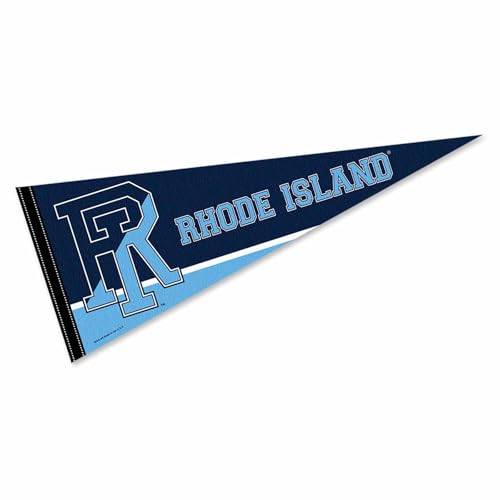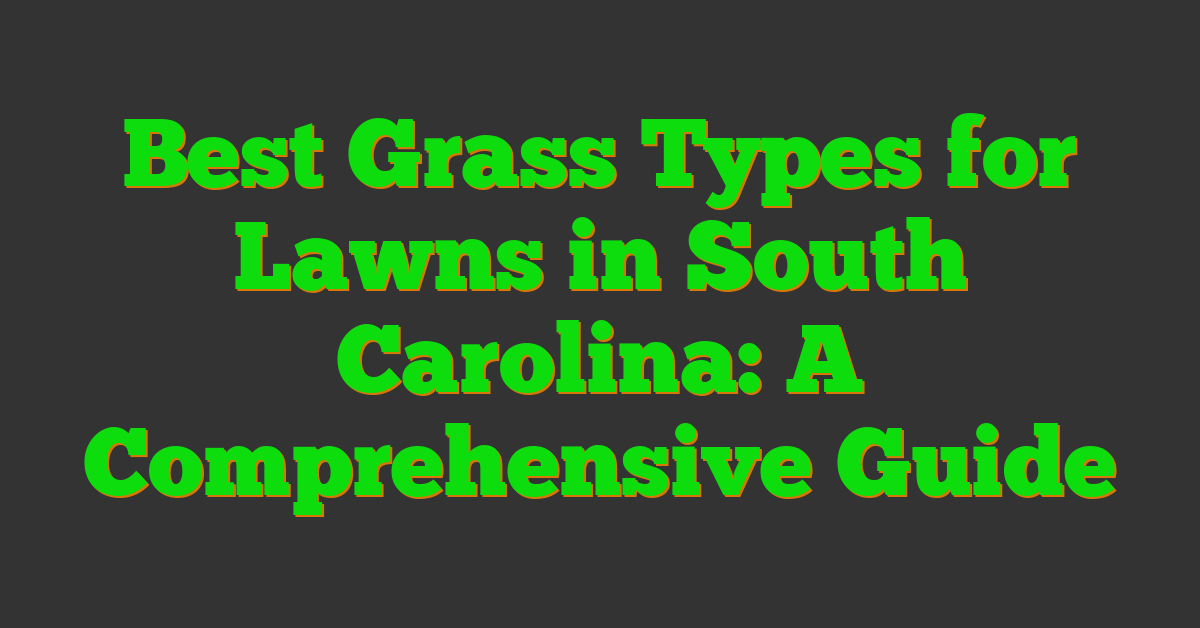Having a lush, green lawn is a dream for many homeowners in Rhode Island. However, achieving this dream requires careful consideration of the grass types that will thrive in the state’s climate and soil conditions. With so many options available, it can be overwhelming to choose the right grass seed for your lawn. In this article, we will explore the best grass types for lawns in Rhode Island and provide tips on how to choose, plant, and maintain them.


Rhode Island’s climate is characterized by cold winters and warm summers, with moderate rainfall throughout the year. These conditions make it ideal for growing cool-season grasses that can withstand the state’s temperature fluctuations. Additionally, the soil in Rhode Island varies from sandy to clay, which affects the grass’s ability to absorb water and nutrients. Therefore, it is crucial to choose a grass type that can thrive in your specific soil conditions.
When it comes to choosing the right grass type, there are several factors to consider, such as the amount of sunlight your lawn receives, the level of foot traffic it experiences, and your desired mowing height. By understanding these factors and selecting a grass type that suits your needs, you can achieve a beautiful and healthy lawn that will be the envy of your neighborhood.
Understanding Rhode Island’s Climate
https://www.youtube.com/watch?v=XkeX3v48jVs&embed=true
When it comes to choosing the best grass type for your lawn in Rhode Island, it’s important to understand the state’s unique climate. Rhode Island has a humid continental climate, which means that it experiences four distinct seasons throughout the year.
In the summer, temperatures can reach into the 80s and 90s, with high humidity levels. Fall brings cooler temperatures and colorful foliage, but also more rainfall. Winter can be harsh, with snow and freezing temperatures, while spring is often wet and cool.
This climate presents some challenges when it comes to maintaining a healthy lawn. You’ll need to choose a grass type that can handle the fluctuations in temperature and moisture levels throughout the year.
Fortunately, there are several grass types that are well-suited to Rhode Island’s climate. These include:
- Tall Fescue: This cool-season grass is ideal for Rhode Island’s climate, as it can tolerate both heat and drought. It has deep roots that make it more resistant to dry spells, and it can also handle shade.
- Perennial Ryegrass: This grass type establishes itself quickly and has a fine leaf texture. It’s ideal for overseeding and can handle heavy foot traffic.
- Kentucky Bluegrass: This high-quality, sod-forming grass is shallow-rooted and ideal for cooler temperatures. It has a high tolerance for wear and can recover quickly from damage.
- Fine Fescue: This grass type is known for its fine texture and shade tolerance. It’s ideal for areas with poor soil quality and can handle drought conditions.
By choosing the right grass type for your lawn, you can ensure that it stays healthy and beautiful throughout the year. Keep in mind that proper maintenance, including regular watering and fertilization, is also important for a thriving lawn.
The Importance of Soil Conditions
https://www.youtube.com/watch?v=cq3AouCOWag&embed=true
When it comes to growing a healthy and beautiful lawn in Rhode Island, soil conditions play a crucial role. The type of soil you have, its pH level, and the nutrients it contains can all affect the health and growth of your grass. Here are some things to keep in mind when it comes to soil conditions:
Soil Type
Rhode Island has a variety of soil types, including sandy, loamy, and clay soils. Each type has its own unique characteristics that can affect how well grass grows. Sandy soils tend to drain quickly and can be low in nutrients, while clay soils hold onto water and nutrients but can be prone to compaction. Loamy soils are a good balance of both and are often the best for growing grass.
Soil pH
The pH level of your soil can also have a big impact on grass growth. Most grasses prefer a slightly acidic soil with a pH between 6 and 7.5. If your soil is too acidic or too alkaline, it can affect the availability of nutrients and make it difficult for grass to grow. You can test your soil’s pH level with a home testing kit or by sending a sample to a lab.
Nutrients
Grass needs a variety of nutrients to grow, including nitrogen, phosphorus, and potassium. If your soil is lacking in any of these nutrients, it can affect the health and growth of your grass. Fertilizers can be used to supplement the nutrients in your soil, but it’s important to choose the right type and apply it correctly to avoid over-fertilizing.
In summary, soil conditions are an important factor to consider when choosing the best grass type for your lawn in Rhode Island. Understanding your soil type, pH level, and nutrient levels can help you choose the right grass seed and ensure the health and beauty of your lawn for years to come.
Why Grass Type Matters
https://www.youtube.com/watch?v=F4Lc_7d3Z2Q&embed=true
Choosing the right grass type for your lawn is crucial for achieving a healthy and lush lawn in Rhode Island. The climate in Rhode Island is characterized by cold winters and hot summers, which makes it important to select a grass type that can withstand these conditions.
Cool-season grasses, such as Kentucky bluegrass and perennial ryegrass, are ideal for Rhode Island’s climate. These grass types thrive in cooler temperatures and can withstand cold winters. They are also drought-tolerant and can recover quickly from heat stress.
Bunch-type grasses, like tall fescue, have a deep root system that makes them more drought-resistant. They are also tolerant of shade and traffic, making them ideal for high-traffic areas.
Rhizomes, which are horizontal underground stems, allow grasses to spread and form a dense turf. This is important for preventing weeds from growing and improving the overall appearance of your lawn. Kentucky bluegrass and creeping bentgrass are examples of grasses that have rhizomes.
The grass type you choose also affects the maintenance required for your lawn. For example, Kentucky bluegrass requires frequent mowing and fertilization, while tall fescue requires less maintenance.
In summary, selecting the right grass type for your lawn in Rhode Island is crucial for achieving a healthy and lush lawn. Consider factors such as climate, drought-tolerance, shade-tolerance, traffic, and maintenance requirements when selecting a grass type.
Top Grass Choices for Rhode Island
https://www.youtube.com/watch?v=ttuWjSZOBBs&embed=true
When it comes to choosing the best grass types for your Rhode Island lawn, there are a few options to consider. Here are some of the top grass choices for Rhode Island:
Kentucky Bluegrass
Kentucky Bluegrass is a popular choice for Rhode Island lawns. It is well-suited to the state’s cool, moist climate and is durable enough to withstand heavy foot traffic. Kentucky Bluegrass is known for its fine texture, dark green color, and ability to self-repair. It is also a great option for those who want a lawn that looks great all year round.
Perennial Ryegrass
Perennial Ryegrass is another great option for Rhode Island lawns. It is a cool-season grass that is known for its quick germination and establishment. Perennial Ryegrass is perfect for those who want a lawn that looks great in the spring and fall. It has a fine texture and is usually dark green in color.
Fine Fescue
Fine Fescue is a group of grasses that includes creeping red fescue, chewings fescue, hard fescue, and sheep fescue. These grasses are well-suited to Rhode Island’s climate and are known for their ability to grow in shady areas. Fine Fescue is also drought-tolerant and requires less water than other grass types.
Tall Fescue
Tall Fescue is a popular grass type for Rhode Island lawns. It is a cool-season grass that is known for its ability to withstand drought and heat. Tall Fescue is also disease-resistant and requires less maintenance than other grass types. It has a coarse texture and is usually dark green in color.
Bentgrass
Bentgrass is a fine-textured grass that is perfect for those who want a lawn with a putting green appearance. It is a cool-season grass that is well-suited to Rhode Island’s climate. Bentgrass requires a lot of maintenance, including regular mowing and fertilization, but the end result is a beautiful lawn that will make your neighbors jealous.
Fescue Grass
Fescue Grass is a group of grasses that includes fine fescues, tall fescues, and creeping red fescues. These grasses are well-suited to Rhode Island’s climate and are known for their ability to grow in shady areas. Fescue Grass is also drought-tolerant and requires less water than other grass types.
Consider these top grass choices for your Rhode Island lawn and choose the one that best suits your needs and preferences.
Choosing the Right Grass Seed
https://www.youtube.com/watch?v=T1RsoPlDNlc&embed=true
Choosing the right grass seed for your lawn in Rhode Island is crucial for a lush and healthy lawn. There are several factors to consider when choosing the right grass seed for your lawn, including seed germination, the type of soil, and the amount of sunlight and shade your lawn receives.
Before selecting a grass seed, it’s important to determine the type of soil you have. Rhode Island has a mix of soil types, including sandy, loamy, and clay soils. Some grasses, like Kentucky Bluegrass and Fine Fescue, are well-suited to sandy soils, while others, like Perennial Ryegrass and Tall Fescue, can thrive in a variety of soil types.
Another important factor to consider is the amount of sunlight and shade your lawn receives. If your lawn is in a shaded area, Fine Fescue and Perennial Ryegrass are good options. If your lawn receives full sun, Kentucky Bluegrass and Tall Fescue are great choices.
When it comes to seed germination, Outsidepride Perennial Ryegrass Seed and Eretz Proturf Perennial Ryegrass Fine Lawn Seed are both known for their quick germination and establishment. SeedRanch Midnight Kentucky Bluegrass Seed is another great option for quick germination.
For new lawns, Triple-Play Tall Fescue Grass Seed Blend is a popular choice due to its ability to establish quickly and withstand heavy foot traffic. Eretz Kentucky 31 K31 Tall Fescue Grass Seed is another great option for new lawns due to its durability and adaptability to a range of soil types.
Finally, for shaded areas, Outsidepride Creeping Red Fine Fescue Grass Seed and Eretz Creeping Red Fine Fescue Seed are both excellent choices due to their shade tolerance and fine texture. For hard-to-grow areas, Outsidepride Hard Fine Fescue Grass Seed is a great option due to its ability to thrive in poor soil conditions.
By considering these factors and selecting the right grass seed for your lawn, you can ensure a healthy and beautiful lawn in Rhode Island.
Optimal Mowing Practices
https://www.youtube.com/watch?v=4n0OJj_t2Mg&embed=true
To keep your lawn healthy and looking its best, it’s important to mow it regularly and at the right height. Here are some tips for optimal mowing practices:
Mowing Frequency: In general, you should mow your lawn once a week during the growing season. However, the frequency may vary depending on the grass type, weather conditions, and other factors. Keep an eye on your lawn and adjust your mowing schedule accordingly.
Mowing Height: The optimal height for mowing your lawn depends on the grass type. For example, Kentucky Bluegrass should be mowed to a height of 1 ½- 2 ½ inches, while Tall Fescue should be mowed to a height of 2-3 inches. Mowing too low can stress the grass and make it more susceptible to disease and pests, while mowing too high can encourage weed growth and make the lawn look unkempt.
Mowing Blade: Make sure your lawn mower blade is sharp and in good condition. Dull blades can tear the grass rather than cutting it cleanly, which can lead to brown tips and a dull appearance.
Mowing Pattern: Vary your mowing pattern each time you mow to prevent soil compaction and promote even growth. For example, if you mowed your lawn in a north-south direction last time, mow it in an east-west direction next time.
Mowing Timing: Mow your lawn when the grass is dry to prevent clumping and uneven cutting. Also, avoid mowing during the hottest part of the day to prevent stress on the grass.
By following these optimal mowing practices, you can keep your lawn looking healthy and beautiful all season long.
Watering and Fertilizing Your Lawn
https://www.youtube.com/watch?v=C0nv5bz_Lz8&embed=true
Maintaining a healthy lawn in Rhode Island requires proper watering and fertilization. With the right techniques, you can keep your grass lush and green throughout the year.
Watering Your Lawn
Rhode Island’s climate can be unpredictable, so it’s important to water your lawn according to its specific needs. Generally, most grass types need about an inch of water per week, either from rainfall or irrigation. However, during times of drought or high heat, your lawn may need more water to stay healthy.
To avoid overwatering, it’s best to water your lawn deeply and infrequently. This encourages deeper root growth and helps your grass withstand drought conditions. If you’re not sure how much water your lawn is getting, consider investing in a rain gauge or moisture meter. These tools can help you monitor your lawn’s water use and adjust your watering schedule accordingly.
Fertilizing Your Lawn
Fertilizing your lawn is another important part of maintaining its health and appearance. Most grass types in Rhode Island benefit from regular fertilization, which provides essential nutrients like nitrogen, phosphorus, and potassium.
When choosing a fertilizer, look for one that’s specifically formulated for your grass type and soil conditions. It’s also important to follow the manufacturer’s instructions carefully, as over-fertilization can damage your lawn and harm the environment.
To apply fertilizer evenly, consider using a spreader or sprayer. These tools can help you distribute the fertilizer more effectively and reduce the risk of burning your grass.
By following these tips for watering and fertilizing your lawn, you can keep your grass looking its best year-round. With a little care and attention, your lawn can be the envy of the neighborhood.
Dealing with Shade and Foot Traffic
https://www.youtube.com/watch?v=AS5P4KcgSTg&embed=true
Maintaining a healthy lawn in Rhode Island can be challenging, especially when dealing with shade and foot traffic. Here are some tips to help you choose the best grass types for your lawn:
Shade Tolerance
If your lawn is shaded by trees or buildings, you’ll want to choose grass types that can tolerate shade. Fine Fescue is a great option for shady areas as it can grow well in partial shade. Kentucky Bluegrass and Perennial Ryegrass are also good choices for areas that receive some shade.
Foot Traffic
If your lawn receives heavy foot traffic, you’ll want to choose grass types that can withstand the wear and tear. Tall Fescue and Perennial Ryegrass are both excellent options for high traffic areas. Creeping Bentgrass is another good choice for lawns that receive moderate foot traffic.
High Foot Traffic Tolerance
If you have a lot of foot traffic on your lawn, you’ll want to choose grass types that can handle it. Perennial Ryegrass is a great option for lawns that receive heavy foot traffic. Kentucky Bluegrass is also a good choice as it can withstand moderate foot traffic.
Remember, the key to maintaining a healthy lawn is to choose the right grass types for your specific needs. By considering shade tolerance and foot traffic, you can choose grass types that will thrive in your lawn.
Seasonal Lawn Care Tips
https://www.youtube.com/watch?v=V553gI-6ug0&embed=true
Maintaining a healthy lawn in Rhode Island requires a bit of effort throughout the year. Here are some seasonal lawn care tips to keep your lawn looking its best.
Summer
During the hot summer months, your lawn may require a bit more water than usual. It’s important to water your lawn deeply and infrequently. This means watering your lawn for a longer period of time less often. This helps to encourage deeper root growth and makes your lawn more drought-resistant. It’s also best to water your lawn in the early morning or late evening when the sun is not as strong.
Fall
Fall is a great time to overseed your lawn. Overseeding is the process of adding new grass seed to your existing lawn. This helps to fill in any thin or bare spots and promotes healthy growth. It’s important to overseed in the fall because the cooler temperatures and increased rainfall provide ideal growing conditions for new grass.
Winter
During the winter months, it’s important to keep your lawn free of debris. Leaves, branches, and other debris can smother your lawn and prevent it from getting the sunlight and air it needs to stay healthy. It’s also best to avoid walking on your lawn when it’s covered in snow or frost as this can damage the grass.
Spring
Spring is a great time to fertilize your lawn. Fertilizing helps to provide the nutrients your lawn needs to grow strong and healthy. It’s important to choose a fertilizer that is specifically formulated for your type of grass and to follow the application instructions carefully.
By following these seasonal lawn care tips, you can help ensure that your lawn stays healthy and beautiful throughout the year.
Preventing and Treating Lawn Diseases
https://www.youtube.com/watch?v=khcjQvABIPI&embed=true
Maintaining a healthy lawn in Rhode Island requires more than just regular watering and mowing. Lawn diseases can easily take hold and quickly spread, causing unsightly brown patches and thinning grass. Here are some tips to help you prevent and treat lawn diseases in your Rhode Island lawn.
Preventing Lawn Diseases
Prevention is key when it comes to lawn diseases. Here are some ways to keep your lawn healthy and disease-free:
Choose the right grass type: Some grass types are more disease-resistant than others. For Rhode Island lawns, consider Kentucky bluegrass, tall fescue, or perennial ryegrass.
Mow your lawn correctly: Cut your grass to the correct height for your grass type and keep your mower blades sharp to prevent tearing the grass.
Water your lawn deeply: Water your lawn deeply and infrequently to encourage deep root growth. Avoid watering in the evening, which can promote disease growth.
Fertilize your lawn properly: Over-fertilizing can weaken your grass and make it more susceptible to disease. Follow the recommended fertilization schedule for your grass type.
Control weeds: Weeds can compete with your grass for nutrients and water, making it more vulnerable to disease. Use herbicides as needed to keep weeds under control.
Treating Lawn Diseases
Despite your best efforts, your lawn may still develop a disease. Here are some common lawn diseases in Rhode Island and how to treat them:
Brown patch: This fungal disease causes circular brown patches in your lawn. To treat brown patch, apply a fungicide and avoid watering your lawn in the evening.
Dollar spot: This disease causes small, silver dollar-sized patches in your lawn. To treat dollar spot, apply a fungicide and avoid over-fertilizing your lawn.
Clover: Although not technically a disease, clover can take over your lawn and make it more susceptible to disease. To control clover, use herbicides or manually remove it from your lawn.
By following these tips, you can help prevent and treat lawn diseases in your Rhode Island lawn, keeping it healthy and beautiful all season long.
Frequently Asked Questions

What are some good grass seed options for a Rhode Island lawn?
Rhode Island’s climate is ideal for cool-season grasses. Some of the best grass seed options for a Rhode Island lawn are Kentucky bluegrass, perennial ryegrass, and fine fescues. These grasses are known for their ability to withstand cold temperatures and harsh winters.
What is the best time of year to plant grass seed in Rhode Island?
The best time to plant grass seed in Rhode Island is during the fall months, from mid-August to mid-October. During this time, the ground is still warm enough to promote seed germination, and the cool temperatures allow the grass to establish strong roots before the winter months.
Which type of grass is best suited for the Northeast climate?
The Northeast climate is best suited for cool-season grasses. These grasses thrive in the cooler temperatures and are more resistant to disease and pests. Some of the best cool-season grasses for the Northeast include Kentucky bluegrass, perennial ryegrass, and fine fescues.
What is the most resilient grass type for a lawn?
Turf-type tall fescue is considered to be the most resilient grass type for a lawn. It is known for its deep roots, which allow it to withstand drought and other environmental stresses. Additionally, it is resistant to disease and pests, making it a great option for homeowners looking for a low-maintenance lawn.
What are some specialty grass seed options for a Rhode Island lawn?
If you are looking for a specialty grass seed option for your Rhode Island lawn, consider creeping bentgrass or colonial bentgrass. These grasses are known for their fine texture and are commonly used on golf courses and other high-end properties. However, they require a lot of maintenance and are not recommended for homeowners who are looking for a low-maintenance lawn.
How do I choose the right grass seed for my lawn?
When choosing the right grass seed for your lawn, consider factors such as your climate, soil type, and maintenance preferences. Cool-season grasses are best for the Northeast climate, while warm-season grasses are better suited for warmer climates. Additionally, consider the amount of sunlight your lawn receives and choose a grass seed that is well-suited for those conditions. If you are unsure which grass seed to choose, consult with a lawn care professional for guidance.
















